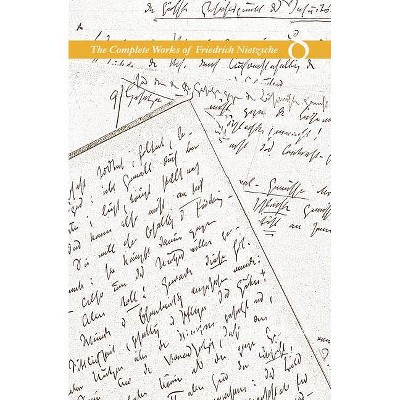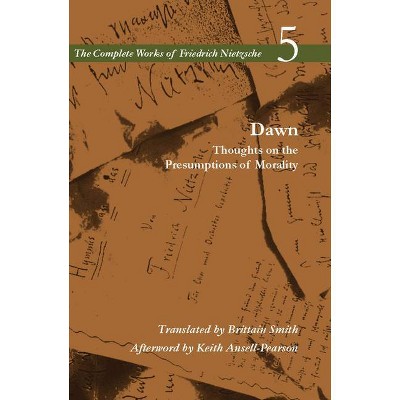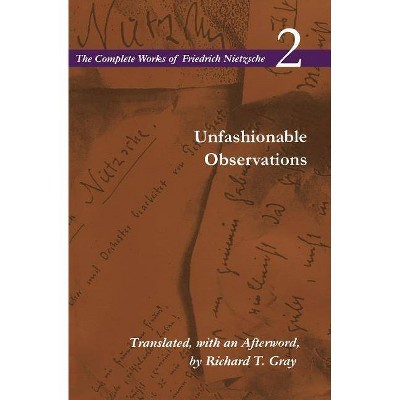Beyond Good and Evil/On the Genealogy of Morality - (Complete Works of Friedrich Nietzsche) by Friedrich Wilhelm Nietzsche (Paperback)

Similar Products
Products of same category from the store
AllProduct info
<p/><br></br><p><b> About the Book </b></p></br></br><i>Beyond Good and Evil</i> (1886) and <i>On the Genealogy of Morality</i> (1887) are Nietzsche's two most persuasive and philosophical books, following close on the heels of his breakthrough hybrid <i>Thus Spoke Zarathustra</i> (1883-85); here for the first time Nietzsche represents himself as a philosopher, setting forth the proper activity of philosophers and training his formidable genealogical focus on the origins and motivations of morality.<p/><br></br><p><b> Book Synopsis </b></p></br></br><p><i>Beyond Good and Evil</i> is Nietzsche's first sustained philosophical treatment of issues important to him. Unlike the expository prose of the essayistic period (1872-76), the stylized forays and jabs of the aphoristic period (1878-82), and the lyrical-philosophical rhetoric of the Zarathustra-period (1882-85), <i>Beyond Good and Evil</i> inscribes itself boldly into the history of philosophy, challenging ancient and modern notions of philosophy's achievements and insisting on a new task for new philosophers. This is a watershed book for Nietzsche and for philosophy in the modern era. <i>On the Genealogy of Morality</i> applies Nietzsche's celebrated genealogical method, honed in the earlier aphoristic writings, to the problem of morality's influence on the human species. In three treatises that strikingly anticipate insights appearing much later in Freud's <i>Civilization and Its Discontents</i> (1930), Nietzsche provides an anthropological psychograph of our species, revealing the origins of the concepts of good and evil, the roles played by guilt and bad conscience, and the persistence of ascetic ideals. Manifesting a hopeful yet unsentimental assessment of the human condition, these books resonated throughout the 20th century and continue to exert broad appeal.</p><p/><br></br><p><b> Review Quotes </b></p></br></br><br>Stanford University Press is doing Nietzsche studies and readers in the English-speaking world a great service through its support and publication of this series of translations of Nietzsche's texts. The Colli-Montinari (de Gruyter) critical edition of Nietzsche's writings, on which they are based, is the German-language 'gold standard' for Nietzsche scholarship. The Stanford series, as it fills out, will undoubtedly come to hold comparable pride of place for English-speaking readers world-wide.--Richard Schacht "University of Illinois"<br><br>This series will become the definitive resource for English readers, a resource much needed given the great wave of philosophical, literary, and political interest in Nietzsche's thought. The excellent translations draw on the latest scholarship and are based on the state-of-the-art Colli-Montinari edition. The editors and translators have taken care to provide consistency in rendering Nietzsche's German and explaining important terms and variants. With their extensive and helpful annotations, the translations are indispensable for the scholar and appealing to the general reader.--Gary Shapiro "University of Richmond"<br><p/><br></br><p><b> About the Author </b></p></br></br>Adrian Del Caro is Distinguished Professor of Humanities at the University of Tennessee, Knoxville.
Price History
Cheapest price in the interval: 23.99 on October 22, 2021
Most expensive price in the interval: 23.99 on November 8, 2021
Price Archive shows prices from various stores, lets you see history and find the cheapest. There is no actual sale on the website. For all support, inquiry and suggestion messages communication@pricearchive.us



















